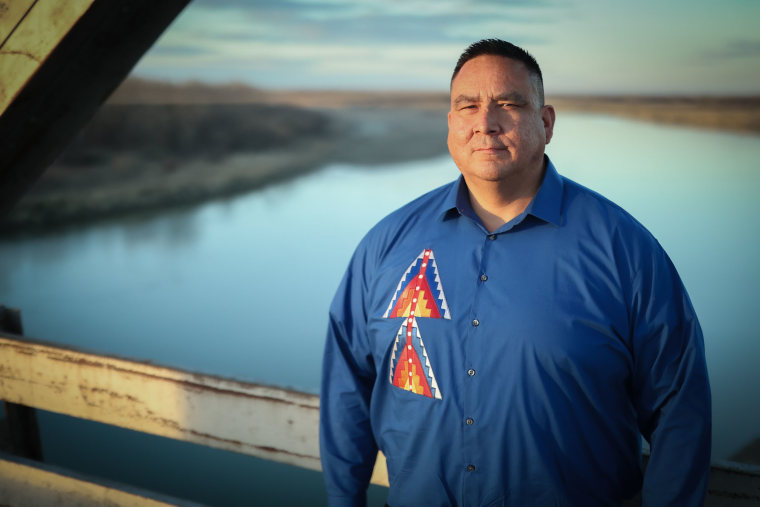On President Joe Biden's first day in office, Floyd Azure had a moment of great jubilation.
As a candidate, Biden had vowed to reverse a decision by President Donald Trump and revoke the permit for the Keystone XL pipeline, the crude oil pipeline proposal that Native American and environmental groups have fought for years. The pipeline would have cut close to lands Azure represents as the chairman of the Fort Peck Assiniboine and Sioux Tribes in northeastern Montana.
Biden made good on the promise in an executive order just hours after he was sworn in.
Lance Fourstar, the chairman of the Fort Peck Assiniboine Council, said he, too, was "overwhelmed with joy."
Said Kevin Killer, the president of the Oglala Sioux Tribe: "For his team to have it as a Day One action item was very meaningful. We felt heard."
But all three men, as well as nearly a dozen other leaders of Native American and Indigenous peoples groups, said in interviews that they also understood the nature of executive action. If recent history is any indication, their victory could be short-lived.
"We know they'll be back, the oil companies," said Harold Frazier, the chairman of the Cheyenne River Sioux Tribe in northern South Dakota. "We could have another president just four years from now. So it's kind of a temporary relief."
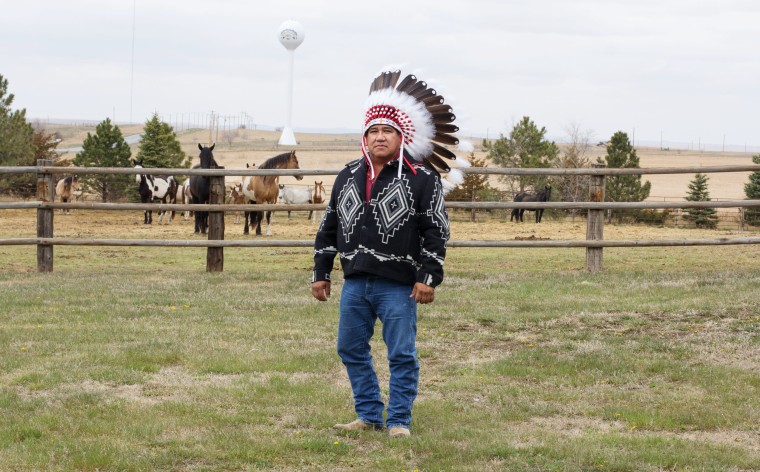
Fourstar said: "We look at Keystone XL as a zombie pipeline. It's been killed before and was brought back to life before. It will live and die again."
Native American groups in South Dakota and Montana, who say the pipeline would jeopardize their lands and water, have made no secret of their admiration for Biden's swift action. They've also celebrated other moves he has taken that have raised the profile of many of their policy priorities, including executive action to establish "federal respect for tribal sovereignty," government agency outreach and the selection of Interior Secretary Deb Haaland, the first Native American leader of a Cabinet agency.
But the leaders and activists have also implored Biden, who has so far made climate issues a cornerstone of his young presidency, to take additional actions that could further hamper future development of Keystone XL and that might stall construction and operation of other pipelines.
"It was definitely a campaign promise that he fulfilled. He went through with it almost immediately. I felt like my prayers were answered," Fourstar said. "But there's more he can do."
A complicated history
The 1,200-mile Keystone XL pipeline, proposed by the Canadian energy conglomerate TC Energy, would carry up to 35 million gallons of tar sands crude oil from Alberta through Montana, South Dakota and Nebraska, where it would meet up with an existing Keystone pipeline to take the product to the coast of the Gulf of Mexico.
Plans for the pipeline have been batted back and forth from one administration to the next. President Barack Obama's State Department formally rejected the permit in 2015 before Trump revived the project, touching off protests and lawsuits. A Supreme Court decision last year halted construction indefinitely, but not before an initial piece on U.S. soil had been completed.
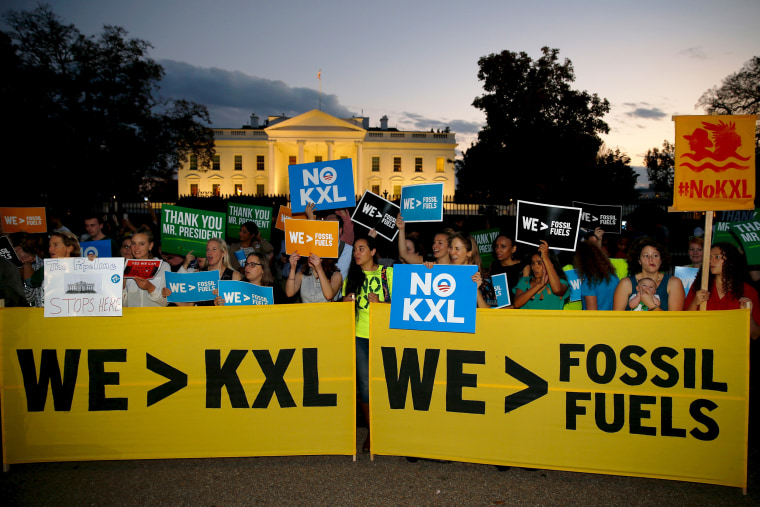
While the pipeline's proposed path doesn't travel on Native American reservations, in several cases it would straddle those lands and run close to, or cross over, multiple water sources the people on the lands rely on for drinking water.
In northeast Montana, the proposed line would be less than a mile from the Fort Peck Indian Reservation, and it would cross the Missouri River, which supplies drinking water sources for the reservation, as well as for nonreservation chunks of northeast Montana.
In the northern part of western South Dakota, the proposed line straddles the Cheyenne River Reservation, while in the southern part of western South Dakota, it would be miles from the Pine Ridge and Rosebud reservations. The proposed line runs near or crosses the Cheyenne and Missouri rivers, which supply drinking water sources for all of those reservations. Aside from those specific waters, the proposed pipeline would cross hundreds of other rivers, streams, tributaries and aquifers, including the enormous Ogallala Aquifer, according to the Natural Resources Defense Council, a nonprofit conservation group.
Scientists have said that in addition to being one of the technically dirtiest fossil fuels, raw tar sands crude has to be mixed with toxic diluting agents — including known carcinogens — to move through the pipeline.
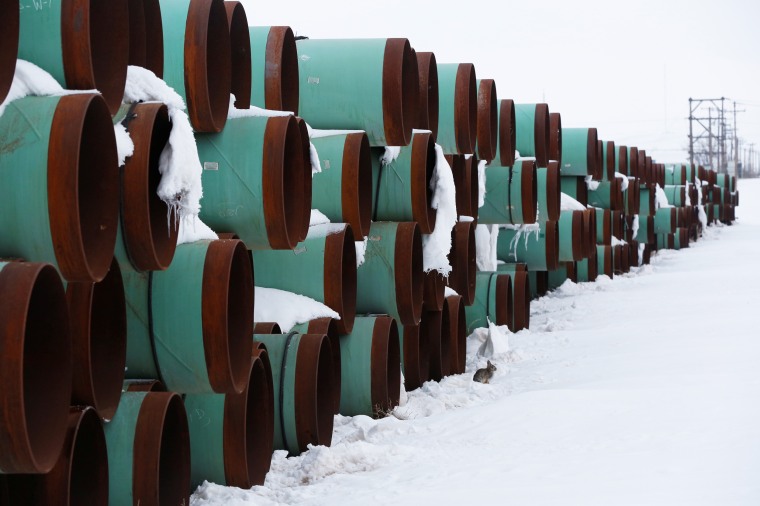
Proponents have argued that the pipeline would create jobs and that it would run on renewable energy.
Republican lawmakers who have sharply criticized Biden's action, led by Sen. Steve Daines of Montana, introduced long-shot legislation after Biden issued his order proposing a permit process that would circumvent the executive branch. With Democrats in control of both chambers of Congress, the legislation has no hope of passage — even though Keystone XL has support from a handful of Democratic lawmakers.
Tribal leaders and environmental activists argue the uniquely dirty properties of tar sands would make potential spillage even more treacherous because it would so easily and so badly contaminate drinking water for their lands.
"Anything manmade eventually breaks. And when it comes to pipelines' eventually breaking, which we know based on these other spills will happen, it's simply not something we want to risk. We know how valuable water is. The concept of 'Mni Wiconi,' which, we say, it means 'water is life,' is older than this country," Killer said.
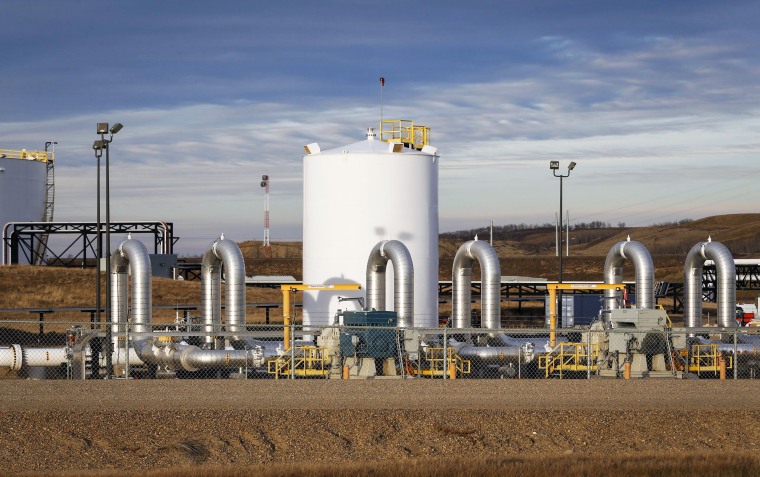
Asked about the concerns raised by the activists and tribal leaders, TC Energy said in a statement: "Safety is and always will be our number one priority.
"We take this obligation seriously, and our commitment to protecting our people, environment, and communities where we live and work is unwavering," it said. It added that it "continues to engage with directly affected Native American groups, including Tribes in Montana, South Dakota and Nebraska, such as the Cheyenne River Sioux Tribe, as we have over the last decade."
What about other pipelines?
For many tribal leaders and activists, Biden's prominent reversal of a Trump policy was important because it helps protect their lands and waters, if only temporarily.
Fourstar, Killer and others said it also meant there would be no more "man camps," a term they use to refer to temporary camps for construction workers, which activists say invite drugs and human trafficking problems into the community.
But they would also like for the administration take a more aggressive stance on honoring "treaty rights" — a broad legal area that encompasses how the U.S. must honor historical treaties reached with Native American groups, including how pipeline construction affects their lands and water sources.
They also suggested that a president who is pushing an aggressive climate agenda can't merely oppose just one pipeline.
The Dakota Access pipeline, or DAPL, which, unlike Keystone XL, is already built and pumping oil, crosses less than a mile from the Standing Rock Sioux Reservation, whose members fear that an oil spill would destroy their water sources.
Attorneys for the federal government said this month that it won't shut down the Dakota Access pipeline while an environmental review is conducted, allowing the oil pipeline to keep operating without a valid permit. Activists have argued that its continued operation is illegal.
"It's not about canceling one extractive project or another. It's about ignoring our sovereignty," said Angeline Cheek, an Indigenous justice organizer for the American Civil Liberties Union of Montana, who is from the Fort Peck Reservation.
"Keystone was canceled, but DAPL still exists. What is the logic in that?" Cheek said.
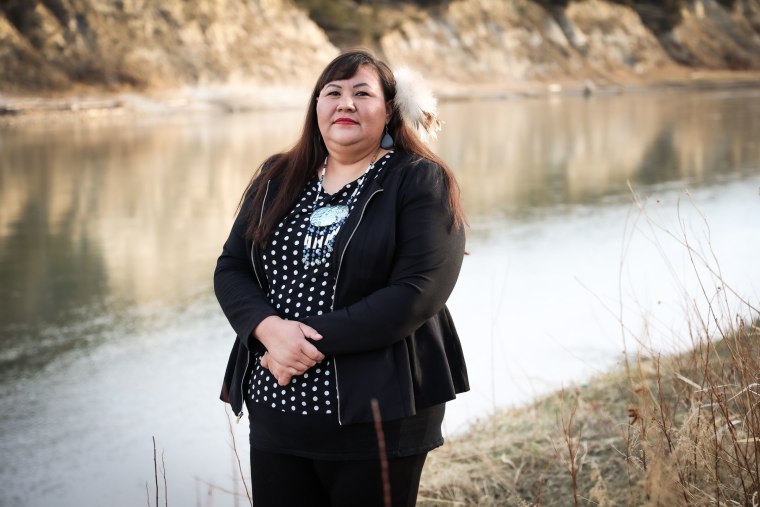
Joye Braun, a member of the Cheyenne River Sioux Tribe who is a community organizer for the Indigenous Environmental Network, said: "It has to be all pipelines. Certainly more than one.
"The Biden administration has said they want to honor and build relationships with Indigenous communities," Braun said. "But when you ignore a blatant transgression of the law with regards to DAPL, it sends a message you're not taking us seriously."
The fact that existing Keystone lines have leaked on multiple occasions in recent years is evidence to Braun, Fourstar and others that it's just a matter of when — not whether — a completed XL line would also leak into the ground, possibly contaminating their water supply.
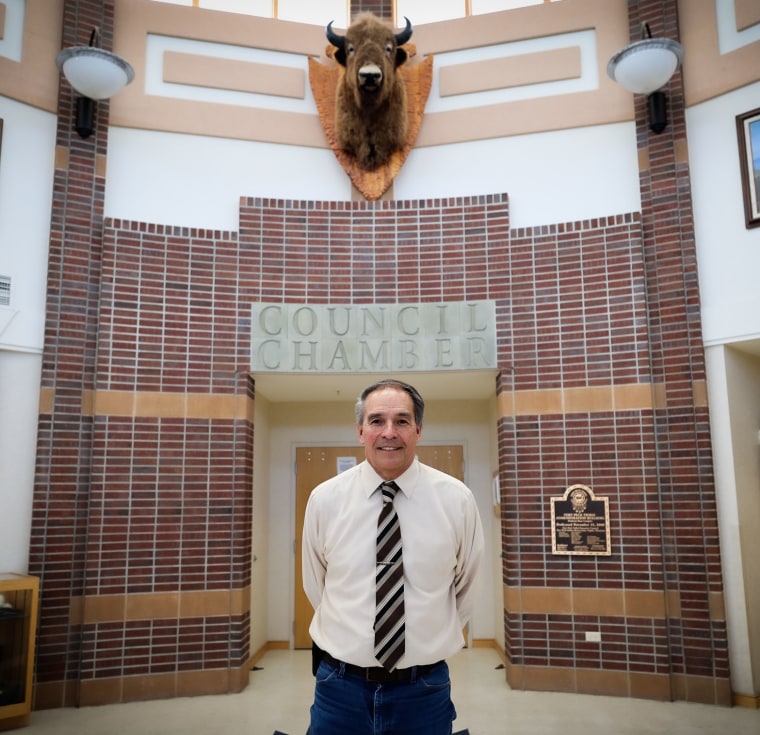
"We have every reason to fear that it will leak in the future and no reason to think that it won't," said Azure, the Fort Peck chairman.
Despite the uncertainty, leaders and activists said they remained optimistic about working with Biden and signaled that they understood that their battle against Keystone XL and other pipelines is likely to run for generations.
"We'll take the wins as they come. We'll continue to fight. Some leaders will be on our side. Some won't," Braun said. "This is a fight that's not really for me anymore. It's for my grandchildren and my grandchildren's grandchildren. I'm trying to be a good ancestor."
